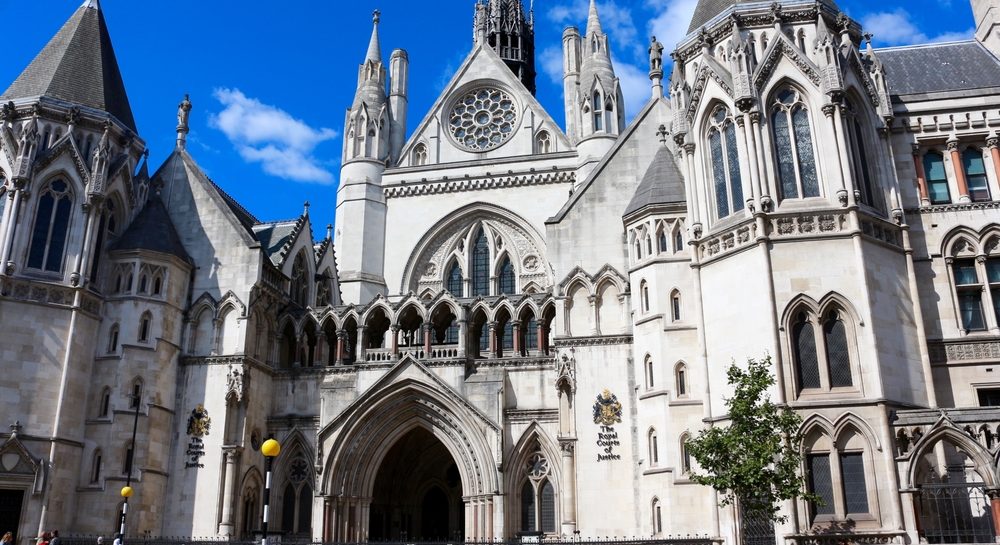On 26 January 2024, Mr Justice Jacobs handed down judgment in the latest of a line of test cases stretching back to and arising out of the FCA Test Case (FCA v Arch), relating to business interruption coverage and the Covid-19 pandemic lockdowns.
In a group of five cases against Liberty Mutual Insurance Europe (LMIE), heard sequentially in October 2023, the court was asked to consider whether the Prevention of Access (Non-Damage) (“POAND”) extension responded to cover losses caused by Covid-19. James Breese and Aaron Le Marquer examine the decision here.
In summary, the court decided:
- The Supreme Court ruling on concurrent causation applies to NDDA clauses in the same way as disease clauses.
- The UK Government is a ‘statutory authority’ within the meaning of the NDDA clause.
- The NDDA clause therefore responds to Covid-19 BI losses arising from the general government measures.
- The limit of liability does not apply per premises where owned/operated by a single insured.
- The limit of liability does apply separately to multiple insured entities under a composite policy.
- Insurers are entitled to take the benefit of furlough payments received by policyholders.
There was one additional set of proceedings, International Entertainment Holdings Limited & Ors v Allianz Insurance Plc, which was heard after the proceedings against LMIE. This case concerned a different wording and produced a different outcome, and will be evaluated in a separate article.
Background
POAND or Non-Damage Denial of Access (“NDDA”) wordings are a category of non-damage BI extension that respond to a prevention or hindrance of access or use of the insured premises, following action taken by an authority in response to, typically, a danger or disturbance within one mile radius of the insured premises. Similar wordings were included within the scope of the 2020 FCA Test Case. The Divisional Court found that such wordings would not respond and the FCA decided not to appeal the finding.
In its analysis of the causation issue in relation to disease wordings, the Supreme Court found that “each of the individual cases of illness resulting from Covid-19 which had occurred by the date of any Government action was a separate and equally effective cause of that action (and of the public response to it).” Logically, the same analysis could equally apply to the NDDA clauses – but as the NDDA clauses were not subject to appeal, the question was left open of whether the same reasoning could be applied to unlock cover.
The LMIE Test Cases represent in some ways the natural conclusion of the FCA Test Case, in examining whether the Supreme Court’s causation analysis can apply to POAND and NDDA policyholders, such that they are entitled to cover in the same way as policyholders with ATP and radius disease wordings are.
LMIE Test Cases
There were six sets of proceedings in relation to the LMIE wording, each of which had consecutive preliminary issue trials in October 2023. Save for the Arena Group, for which cover had already been confirmed, the claimants each had materially similar policy wordings, which LMIE denied would respond to cover Covid-19 losses.
The following key issues were before Mr Justice Jacobs in the LMIE Test Cases:
- Causation: does the Supreme Court’s concurrent causation analysis apply to NDDA wordings?
- Statutory Authority: does the undefined term ‘Statutory Authority’ include central government?
- Aggregation: are the sub-limits of indemnity available per government action and per insured entity and/or per insured premises, or in the aggregate?
- Furlough: are insurers entitled to take the benefit furlough payments received by the policyholder?
Each of these is discussed below.
Causation
Although LMIE sought to argue that Corbin & King was wrongly decided, and that the Supreme Court’s concurrent causation was inapplicable to the POAND clause, it ultimately accepted that this argument was not available at first instance. LMIE therefore consented to judgment in the policyholders’ favour on this issue, subject to permission to appeal.
Statutory Authority
LMIE argued that the UK Government was not a ‘Statutory Authority’ within the meaning of the policy on the basis that the undefined term was concerned with the status of the originator of the restrictions, and not the powers being exercised. Neither the UK Government nor the Secretary of State for Health was formed by statute, and were not therefore statutory authorities.
Mr Justice Jacobs rejected that position: “A pedantic lawyer might be interested in the constitutional and legal origin of the originator of the relevant restrictions. I do not consider that it would occur to the reasonable ordinary policyholder (or indeed insurer) that the words “Statutory Authority” required the examination posited by Liberty Mutual’s argument.”
Accordingly, the UK Government was found to be a Statutory Authority within the meaning of the wording which, coupled with the ruling on causation, led to a finding of coverage under the NDDA clause.
Aggregation
The policyholders had different cases on aggregation because of their differing policy wordings. All of the policyholders operated multiple premises, and all had been subject to various restrictions during the policy period, but in each case the total losses suffered exceed the limit of liability under the POAND many times over. They all therefore sought to argue that they were entitled to multiple limits of liability to indemnity their losses, but the position and the arguments available to each of the policyholders was different.
Hollywood Bowl and Fuller Smith & Turner (“Fuller”) were each single insured entities operating multiple insured premises. These claimants argued that the limit applied ‘per premises’ and ‘per government action.’
The claimants in Gatwick Investment were separate corporate entities within the same corporate group, each insured under its own policy. The Gatwick claimants were not therefore concerned with ‘per premises’ but argued that the limit applied ‘per government action’.
The claimants in the Starboard Hotel, Liberty Retail and Arena Group cases were also separate entities within the same group, but insured together under a composite policy of insurance. They therefore argued that the limit applied ‘per entity’, ‘per premises’ and ‘per government action’.
For its part, LMIE adopted a variety of aggregation positions across the cases, but generally argued for an application of the limit on an annual aggregate basis.
Per premises
Hollywood Bowl and Fuller’s arguments for ‘per premises’ recovery were premised on the word ‘Limit’ in the policy schedule, meaning something different to the defined term ‘Limit of Indemnity’. This applied a ‘per occurrence’ aggregation mechanism.
The court rejected any such distinction. Mr Justice Jacobs concluded that the reasonable reader would not find any fundamental distinction between “Limit” and “Limit of Indemnity”, commenting that this approach produces certainty and a commercial sensible result. As a result, a single insured policyholder with multiple premises is not entitled to a separate limit of liability per premises.
Having found that the machinery of the policy provides for “per occurrence” aggregation, it followed for this and other reasons that LMIE failed with its opposing argument that there was an annual aggregate limit for the POAND clause.
It is notable that the occurrence-based construction again did not produce a ‘per premises’ result, which is consistent with the outcome of the Marsh Resilience litigation, as confirmed by the Court of Appeal in Various Eateries v Allianz recently and in Pizza Express v Liberty Mutual & Anr.
The exception in these proceedings was Arena Racing’s policy, which provided for the limit to apply ‘any one loss’. Although the meaning of ‘any one loss’ was not itself determined in these proceedings, it is clear from the reasoning in Corbin & King (which concerned an ‘any one claim’ wording) that these words point to the most granular form of aggregation ie per premises per insured event.
Composite Policy
The parties in Starboard, Liberty Retail and Arena Group agreed that the policies were composite with separate contracts of insurance between the insurer(s) and each of the insured entities in respect of their own insured interest.
Policyholders argued that this entitled them to separate limits of indemnity for each insured entity, whereas LMIE maintained that just one limit of indemnity was available to be shared in an unspecified way between all the insured entities.
Mr Justice Jacobs commented that the court in Corbin & King found the relevant policy was a composite policy in respect of which each insured could claim up to the relevant policy limit. Mr Justice Jacobs found no material distinction between the cases before him and the policy in Corbin & King, which itself had relied upon the Court of Appeal decision in New Hampshire Insurance Co Ltd v MGN Ltd.
The observations in Corbin & King that:
- the wording expressly referred to “premises”;
- the insured entities had separate insurable interests; and
- the premises were in different locations and so could be affected differently, all applied equally to the LMIE Test Cases in which the composite policy argument was pursued.
The court found that there was no basis upon which to distinguish the reasoning and there was nothing to suggest that Mrs Justice Cockerill was wrong in Corbin & King, or that a reasonable policyholder would understand that the limit should be shared between the insureds.
Furlough
Furlough was a live issue in all cases except Fuller’s. The question for the court was whether the insurers were entitled to take the credit of furlough payments received by the policyholders from the Government.
The existing decision on this issue was given by Mr Justice Butcher in Stonegate, and favoured insurers. It was due to go to appeal in November 2023 before Stonegate settled shortly before the appeal hearing.
The court in these LMIE Test Cases followed Mr Justice Butcher’s decision, and found that the insurers are entitled to deduct the furlough payments that the policyholders have received in the relevant period from the indemnities that are paid under the policy. The court gave the following reasons:
- There was no need to depart from Mr Justice Butcher’s decision that furlough payments had reduced the costs to the business, as the policy constructions in dispute and arguments in relation to them were materially the same on this issue.
- A concurrent causation analysis applies to furlough payments received in the same way as concurrent causation principles determine coverage. Insurers therefore succeeded in establishing that furlough payments were received “in consequence of the insured peril”.
- Furlough payments were not benevolent gifts but a measure introduced to mitigate the economic impact of the restrictions imposed by the government, and insurers would be subrogated to the recovery of those sums under the general law.
Permission to appeal
Permission to appeal was granted on the causation and furlough issues, but refused on the issues relating to limits, statutory authority, and composite policy.
Comment
The outcome of these cases is significant to policyholders for a number of reasons.
First, the court has once again confirmed that NDDA policyholders are entitled to cover. This is consistent with Mrs Justice Cockerill’s comments in Corbin & King, and Lord Mance’s comments in the China Taiping Arbitration, and means the large majority of policy wordings originally considered in the FCA Test Case respond to Covid-19 BI losses. Large numbers of policyholders who remain uncompensated four years on from the commencement of the pandemic may now therefore be able to pursue their claims.
Secondly, policyholders with composite policies are entitled to separate limits of indemnity for each of the entities insured by their policy. Again, this is consistent with Corbin & King and earlier case law, and may have important ramifications beyond the context of business interruption as well as hugely increasing the indemnities available to large corporate groups.
Thirdly, the decision is consistent with prior decisions in relation to per premises claims on occurrence-based policy constructions, and furlough. As it stands, the ‘per premises’ argument now appears limited to wordings applying an ‘any one claim’ or ‘any one loss’ scheme of aggregation.
In relation to furlough, which has important implications across the market, the position is unchanged. Insurers succeeded on that issue in Stonegate, and Mr Justice Jacobs has not departed from that decision when considering the same issue in the LMIE Test Cases. Policyholders have been granted permission to appeal the outcome on furlough, and we may therefore finally see a decision from the Court of Appeal on that issue later this year.
The Covid Claims Service will help businesses that were heavily impacted by Covid-19 recover payment from their insurers. Of 370,000 UK business interruption insurance policyholders, only 43,027 claims have been paid out by insurers according to data published by the FCA in March 2023.
You can find further information regarding our expertise, experience and team on our Policyholder Disputes page.
If you require assistance from our team, please contact us.
Subscribe – In order to receive our news straight to your inbox, subscribe here. Our newsletters are sent no more than once a month.







